Movie magic: Script annotations by Marlon Brando, John Wayne and others
Occasionally I dive a bit deeper into Google in search of annotated script pages by people actually shooting the films: directors, writers, actors. Sometimes I strike movie history gold.
I’ve previously shared some script pages personally annotated by Harrison Ford, while shooting the first Indiana Jones. For me, such pages are glimpses behind the curtain of the movie magic.
Of course, even the shooting script alone is that. But with annotations you get a glimpse into the mind and mindset of those penning the lines. Sometimes, it really does reveal something more, the deeper meaning of a scene for an actor, or a special beat, or personal preference. Sometimes you can really see how an iconic movie moment first came into being.
Now let’s be clear - annotated scripts by Hollywood royalty are sold for sometimes hundreds of thousands of dollars and are, hence, resting in the entirety in the homes of very wealthy people. But by scouring the web, I sometimes found a few hidden pages left online. Always makes me smile that you and me still get to enjoy a bit of what others pay mountains of moolah.
Alright then, here are a few wildly diverse bits I’ve found: Annotations by “Bones” DeForest Kelley on an original Star Trek episode script; notes by Trevor Howard on the “Third Man” script; some of Marlon Brando’s ruminations for “The Island of Dr. Moreau”; a note by the Duke himself, John Wayne; and finally, meeting notes by famed screenwriter Ernest Lehman, after meeting with Elizabeth Taylor and Richard Burton to discuss “Who’s Afraid of Virginia Woolf?”
Here goes:
These notes by DeForest Kelley (Doc McCoy) are the Star Trek episode that aired as "Spectre of the Gun" (working title: The Last Gunfight).
The front page lists the scene numbers Doc McCoy was in and the name and phone number apparently were those of one of the stuntmen, named Bob Orrison.
The Third Man is an iconic film noir set in post WWII Vienna - Orson Welles' Harry Lime and the music alone make it worth watching again and again. Trevor Howard played Major Calloway and here are some of his notes.
By the way, there’s a The Third Man museum page on Facebook - even just going through their photo albums is brilliant. They've curated everything they could (and can) find in connection with the film. Scenes from the shoot, trivia, you name it. And on the occasion of what would have been Trevor Howard's 100th birthday, they got hold of his original script (dated 20 September 1948). The script, of course, was written by none other than Graham Greene.
Here are two script pages annotated by Trevor Howard pre filming (the full script is apparently on display at the museum in Vienna).
The 1996 version of The Island of Dr. Moreau was a troubled production - and that's what it'll probably be remembered for. Well, that and Marlon Brando's interesting acting and outfit choices. The few notes below, written by Brando in red ink, are from the 1994 draft.
On Reddit, a few voices came together around this content - interesting read since some of the commenters were connected with the production > read the comments here.
On the front it says the following: "Dio -- By craft + stealth" ... "Make speech about inability to invent religeous [sic], political, military, economic, philosophical ethics. Most destructive animal that ever evolved women are different are life protectors. Animals are not the problem humans are and virises [sic] as well. We will either find a solution to male ferocity. or we will find our graves in the poisoned snow of a dead planet. I have sacrificed everything I have on this earth. I see myself as a soldier of the mind, and death holds only a sliver of fear for me -- my work is my life."
Came across this page, the back of John Wayne's script. He scribbled some words for his iconic turn as Rooster Cogburn in the original 1969 True Grit. Iconic movie magic moment, indeed!
The Duke's handwritten note reads "Fill your hand and meet your maker." In the film he actually said, "Fill your hand you son of a bitch." Not bad either. If you feel like watching the glorious clip, scroll down and enjoy! And if you feel like comparing it to the Coen's True Grit, scroll even further ... as much as I love Jeff Bridges, the real Rooster will always be John Wayne. It's the Duke, every time, scowl, Winchester and all.
If the name Ernest Lehman doesn't ring a bell and you're in the film business ... then you may want look up Screenwriting Principle #6 - get with it, will ya?
Ernest Lehman is probably best known for writing North by Northwest. But another one of his works that became movie history was the adaptation of Edward Albee's play Who's Afraid of Virginia Woolf?. The play opened on Broadway in 1962, Warner Brothers bought the rights in 1964 and two years later we had the film, starring the grand couple, Elizabeth Taylor and Richard Burton.
Here are the Lehman’s notes written after meeting with Burton and Taylor. This wasn't your usual screenwriter gig - Lehman wrote it, but he also produced it (together with others). He was a writer with serious clout and, according to the notes below, went over things like choice of cameraman and other acting roles. He writes that he suggested Robert Redford and Collin Wilcox as actors to play the young couple ... and Taylor and Burton didn't know either.
Feel free to decipher a wonderful tiny bit of movie history.
There you have it - wishing you a lovely day. Cheers, D



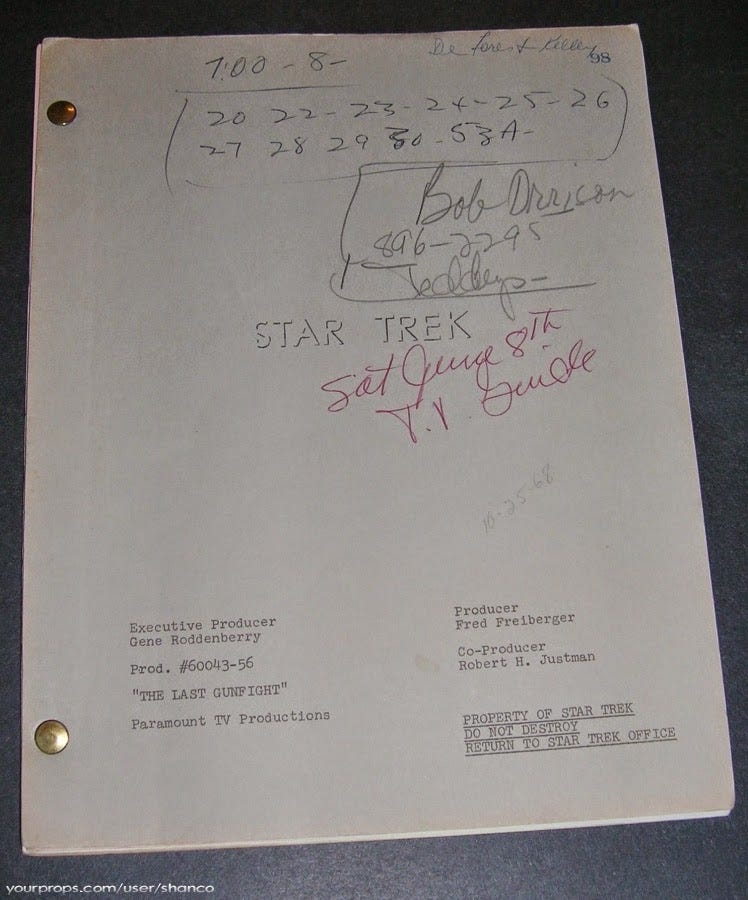
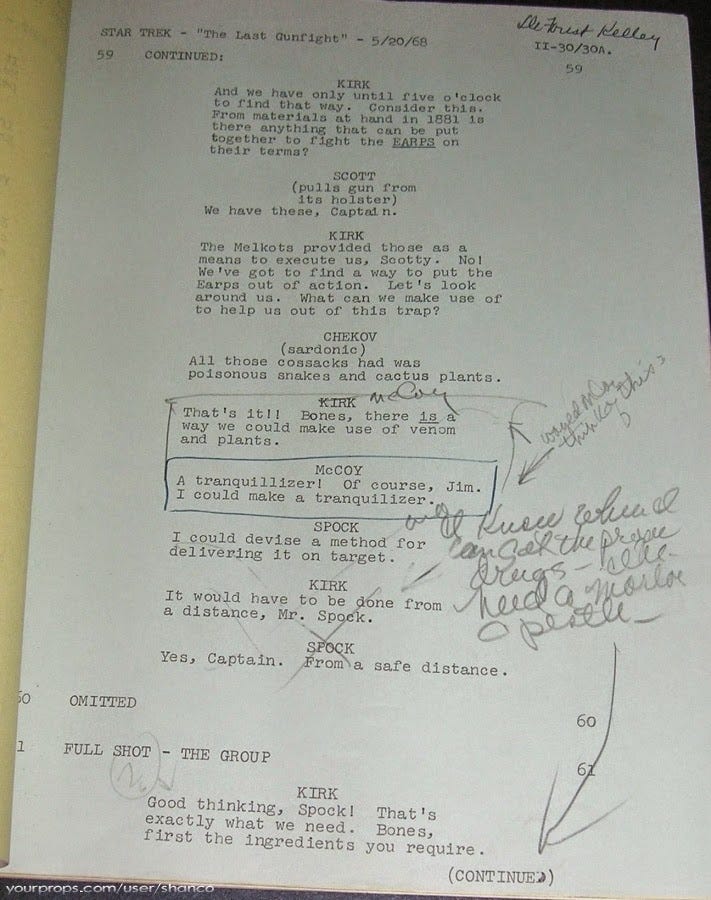
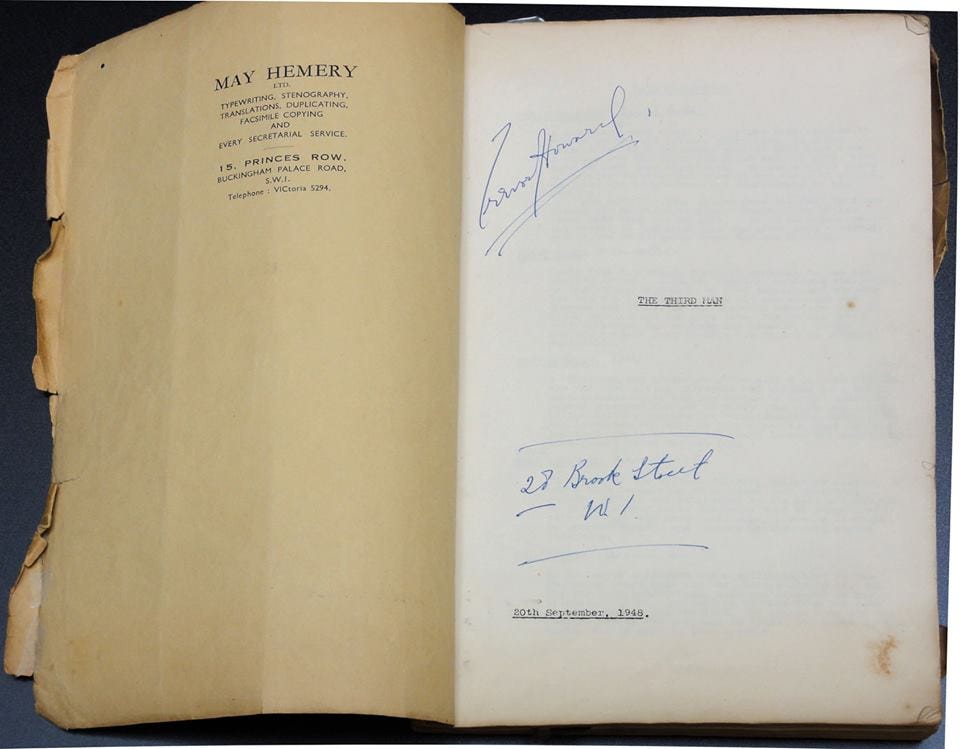
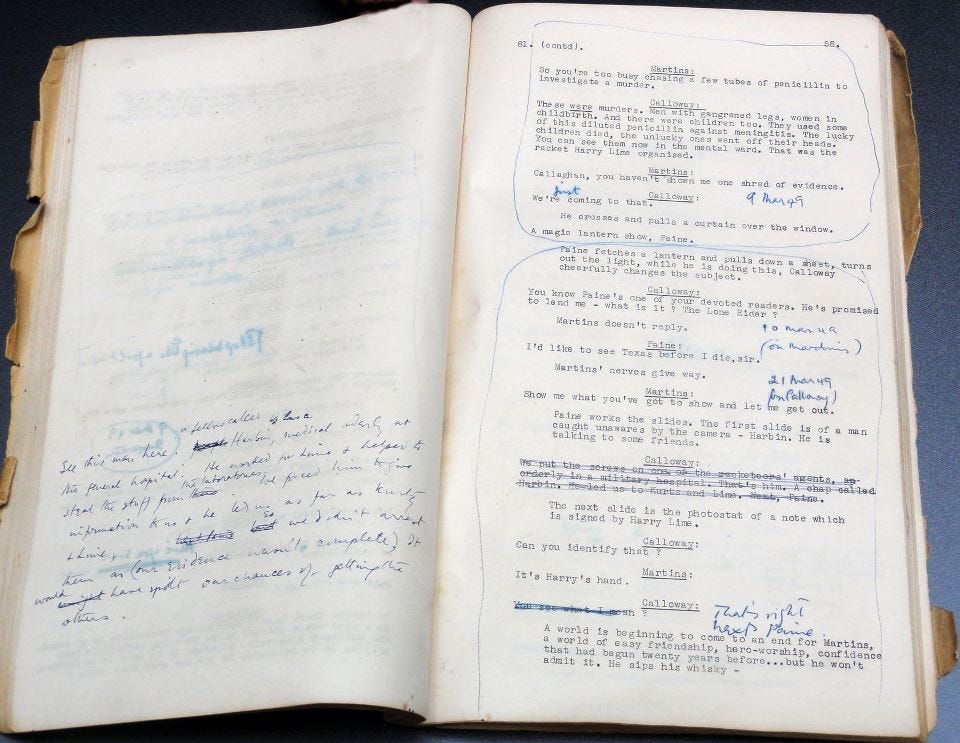
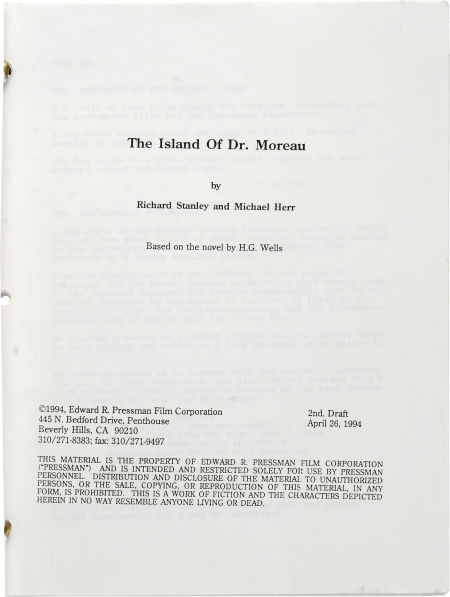
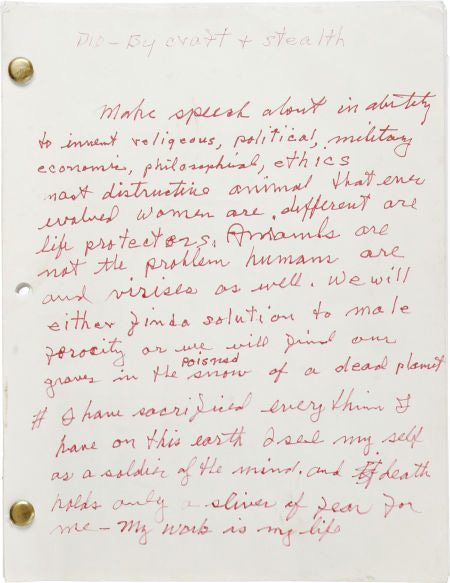
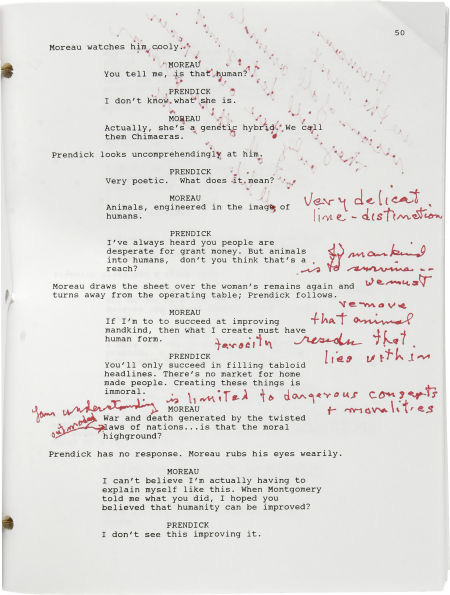
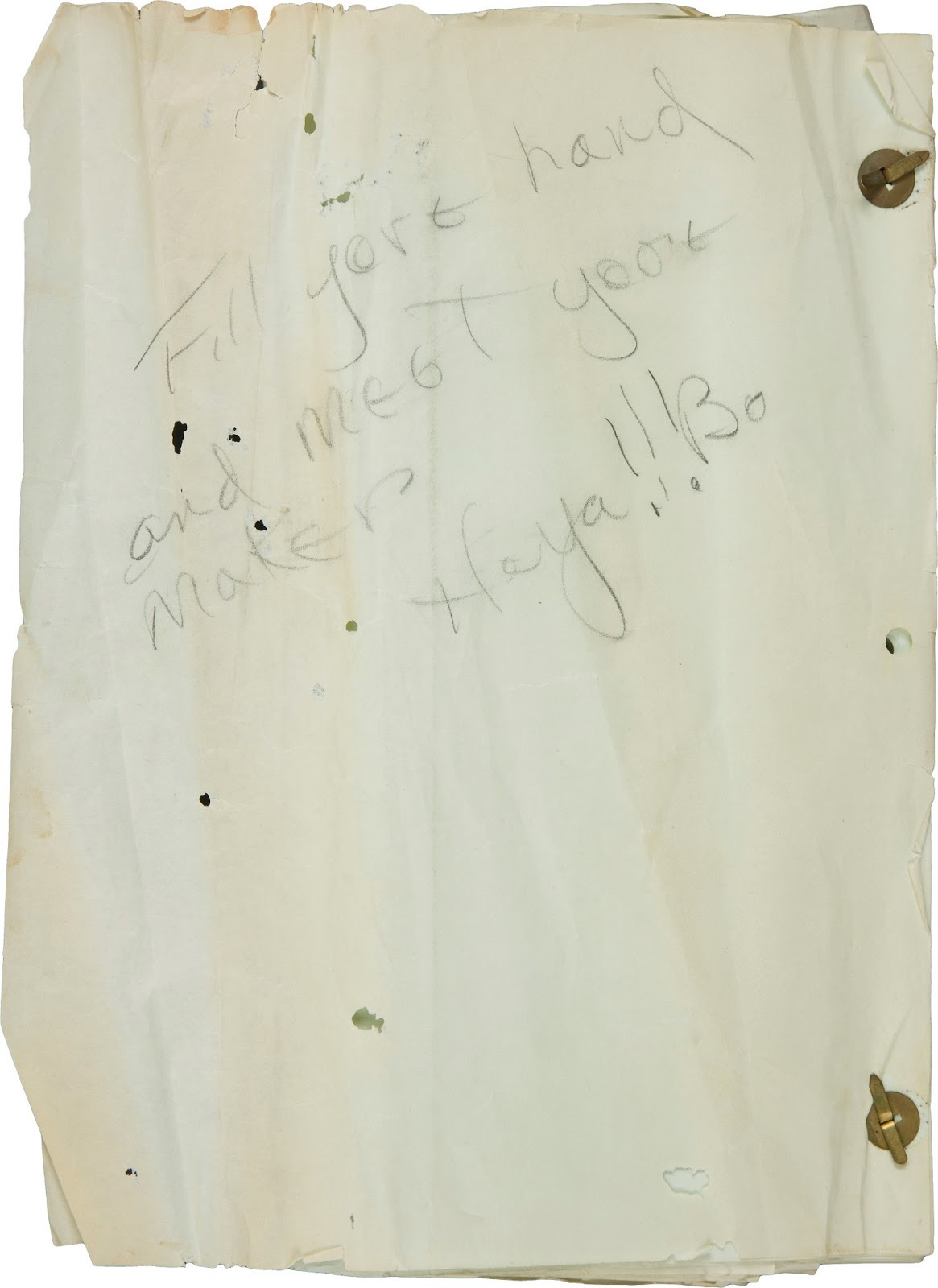
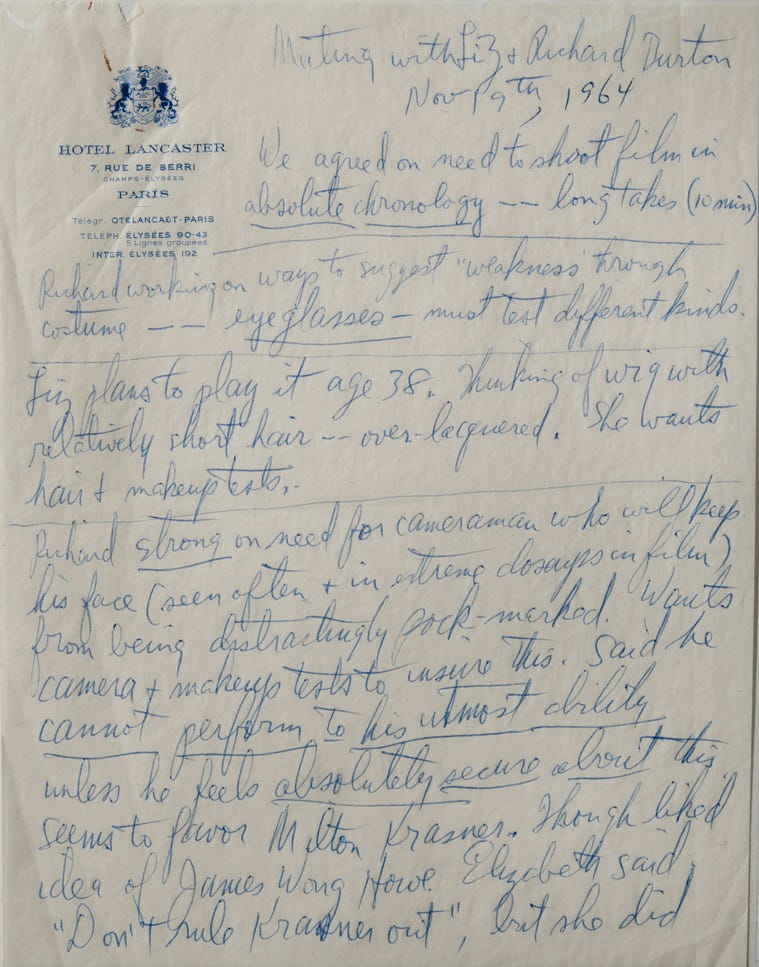
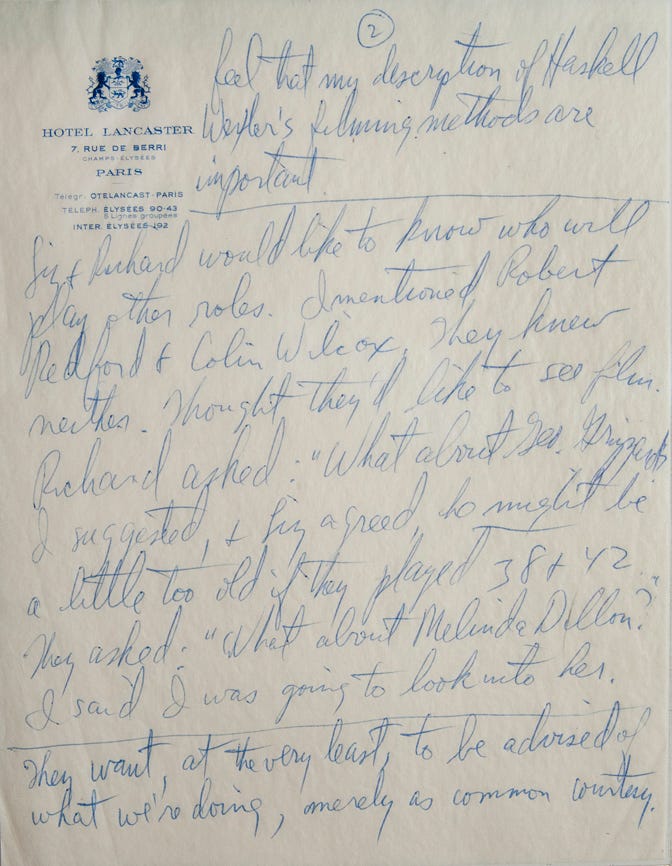
Great to see these notes!
I agree with you about John Wayne; as much as I like the Coens' version (I don't see it as a remake, but rather a second film from the same great book), the first remains a classic, and Wayne is the ONLY Rooster. It's too bad our current perspective on his controversial life has tarnished his cinematic legacy. I was at the Oscars the last night he appeared in public - not a dry eye in the house. Ben Johnson told me a great story about what happened backstage before he walked out to say goodbye to Hollywood.
Blacklisted screenwriter Marguerite Roberts adapted the TRUE GRIT screenplay. There was some concern that Wayne would have an issue with that, but that was not the case. Her career dates back to the '30s. Both movies benefit from the original dialogue and style in Charles Portis' original novel. The story is told in the voice of the elderly Matty, which explains the filigreed language and limited contractions.